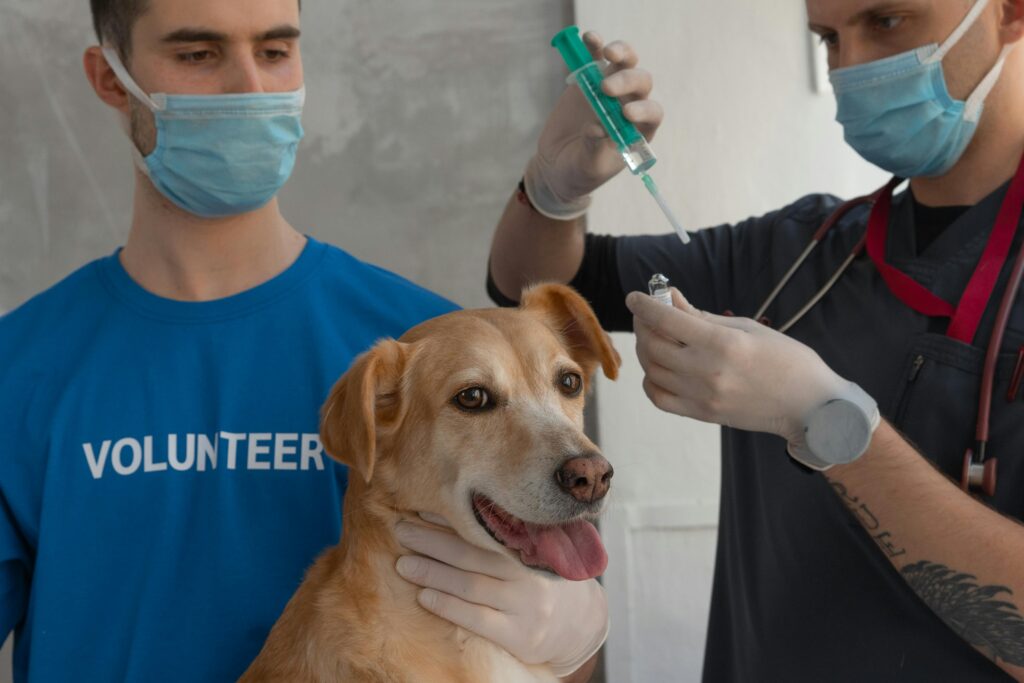
Just like humans, puppies are surprisingly sensitive to the changing seasons. As a pet parent, you might notice your furry friend acting differently as the weather shifts throughout the year. Understanding these seasonal influences can help you provide better care and keep your puppy happy year-round.
Spring: Energy Surges and Sensory Overload
Spring brings longer days, warmer temperatures, and an explosion of new sights, sounds, and smells. Your puppy’s energy levels often spike during this season as their body responds to increased daylight hours, which affects melatonin production and overall alertness.
During spring, you might notice your puppy becoming more excitable and curious. The world is literally blooming around them, with new scents from flowers, grass, and other animals emerging from winter. This sensory stimulation can be overwhelming for young dogs, potentially leading to increased anxiety or hyperactive behavior.
What you can do: Increase exercise through longer walks and training sessions. Gradually expose your puppy to spring’s sensory experiences to prevent overwhelm, and consider adding puzzle toys to channel their heightened energy productively.
Summer: Heat-Related Lethargy
Summer’s heat significantly impacts puppy behavior. Higher temperatures often lead to decreased energy levels, increased sleeping, and reduced appetite. Puppies are particularly vulnerable to heat stress because they can’t regulate their body temperature as efficiently as adult dogs.
You might also notice behavioral changes tied to altered routines. Family vacations and outdoor gatherings can disrupt your puppy’s normal schedule, causing stress or anxiety. Some puppies become clingier during summer months, while others may seem irritable.
What you can do: Adjust walk times to cooler morning and evening hours. Provide plenty of fresh water and cool resting spots. Maintain consistent feeding schedules despite summer activities, and consider indoor enrichment during peak heat hours.
Fall: Comfort with Potential Anxiety
Fall often brings the most balanced behavior in puppies. Moderate temperatures typically result in more stable moods and energy levels. However, fall also brings changes that can trigger anxiety. Shorter days mean less natural light, which can affect your puppy’s circadian rhythm. The introduction of loud noises from fireworks and Halloween festivities can be stressful.
What you can do: Maintain outdoor exercise despite cooling temperatures. Ensure your puppy gets exposure to natural light during the day, and begin desensitization training for holiday-related sounds and activities.
Winter: Seasonal Mood Shifts
Winter presents dramatic behavioral changes for many puppies. Reduced daylight can affect serotonin and melatonin levels, potentially leading to “winter blues” in dogs. You might notice your puppy sleeping more, showing less interest in activities, or becoming more withdrawn.
Cold weather also means less outdoor time, which can result in pent-up energy manifesting as destructive behavior, excessive barking, or indoor hyperactivity. Some breeds are more affected than others, with puppies from warm-climate breeds showing particular sensitivity.
What you can do: Invest in appropriate winter gear like dog coats if needed. Create indoor exercise routines including hallway fetch and tug-of-war. Increase mental stimulation with training and food puzzles.
Recognizing Seasonal Changes in Your Puppy
Watch for these signs that seasons are affecting your puppy: increased lethargy or excessive sleeping, changes in appetite, clingy or anxious behavior, destructive behavior from boredom, withdrawal or reduced playfulness, and increased vocalization.
Supporting Your Puppy Through Transitions
The key to helping your puppy adjust is maintaining consistency while adapting to their changing needs. Keep core routines like feeding times and training sessions stable even as you modify the details. Gradual transitions work best, giving your puppy time to adapt without overwhelming them.
Pay attention to your individual puppy’s needs. Breed, age, size, and personality all influence how dramatically seasons affect behavior. Consult your veterinarian if you notice significant behavioral changes that concern you.
Seasonal changes naturally affect your puppy through environmental factors, daylight variations, and temperature shifts. By understanding these patterns and proactively adjusting your care approach, you can help your puppy maintain emotional balance and happiness throughout the year.
For more expert tips on puppy care, training advice, and health guides, visit PetsDogPuppy. We’re your trusted resource for everything you need to raise a happy, healthy puppy through every season of their life.


